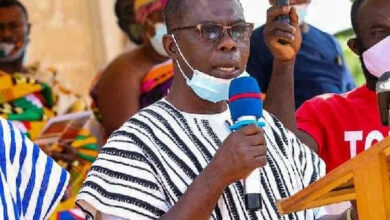55 Mahama appointees defy asset declaration deadline

Despite President John Mahama’s public show of commitment to transparency and a clear directive, 55 appointees in his government have failed to declare their assets and liabilities by the March 31 deadline.
An investigation by The Fourth Estate has revealed that 32 percent of the president’s newly appointed officials have not complied with this key constitutional requirement.
The defaulters include nine out of 55 ministers and deputy ministers, eight of the 32 presidential staffers, and 37 of the 84 heads of state institutions appointed between January 15 and March 18, 2025.
Some of the notable individuals who have not met the deadline include Seth Terkper, Presidential Adviser on the Economy; Larry Gbevlo-Lartey, Special Envoy to the Alliance of Sahelian States; Nathan Kofi Boakye, Director of Operations at the Presidency; Charles Kipo, Director of the National Investigations Bureau; Nana Yaa Jantuah, a presidential staffer; Ernest Brogya Gyamfi, Deputy Minister of Defence; Alhassan Suhuyini, Deputy Minister of Roads and Highways; Gizella Tetteh-Agbotui, Deputy Minister of Works and Housing; and John Dumelo, Deputy Minister of Food and Agriculture. Also on the list are Anthony Kwasi Sarpong, Commissioner-General of the Ghana Revenue Authority, and Dr. Peter Otukunor, who is responsible for Presidential Initiatives in Agriculture and Agribusiness.
President Mahama had earlier signaled his seriousness about asset declaration when he publicly filed his own with the Auditor-General, Johnson Akuamoah Asiedu, on February 18 at Jubilee House.
He then issued a directive to all appointees to do the same by March 31, 2025, warning that failure to comply would attract “severe sanctions not excluding removal from office.”
“I have taken this step to send an unmistakable signal to all public officeholders, especially those that I have appointed, that I take the declaration of assets very seriously and expect full compliance from them,” Mahama said at the time.
The requirement for public officers to declare their assets is outlined in Article 286 of the 1992 Constitution and reinforced by the Public Office Holders (Declaration of Assets and Disqualification) Act, 1998 (Act 550).
Public officials are mandated to declare their assets and liabilities when they assume office, every four years thereafter, and at the end of their tenure. The process involves obtaining and submitting a sealed form from the Auditor-General’s Office.
Mahama’s symbolic gesture in February was meant to set the tone for an accountable government.
“We must not only comply with the law but also demonstrate to the public that we have nothing to hide,” he told appointees.
The findings, however, suggest a disconnect between the president’s intent and the actions of some of his top officials, casting doubt on the internal enforcement of transparency standards.
“Even as we strive to hold the past government accountable for their stewardship, I deem it even more imperative to enforce anti-corruption laws among our present public officeholders,” the president said.
“Charity, they say, begins at home. I am therefore determined that we fight corruption vigorously so that the precious little resources that have been entrusted to us by the Ghanaian people are used only in their interest.”
It remains unclear what actions will be taken against those who have defied the directive, but the president’s credibility on anti-corruption may depend on his next move.
See the full list below:





